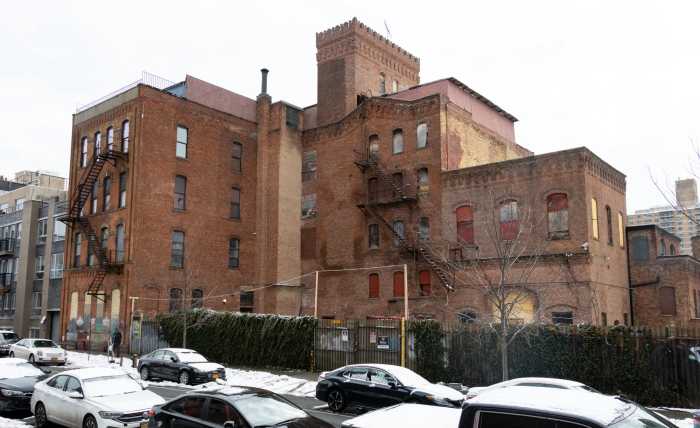State lawyers this week slammed a suit seeking to block the Atlantic Yards mega-development as nothing but a “fishing expedition” designed to delay the imminent approval of the $4.2-billion project.
Empire State Development Corporation lawyer Douglas Krause called the lawsuit, which was filed last month by 10 residents and business owners who would be evicted to make room for Atlantic Yards, “without merit.”
At issue in the case is whether the state broke the law when it condemned private property for Bruce Ratner’s 16-tower, residential, office space, retail and arena project.
But with Atlantic Yards speeding towards final state approval before the end of the year, the plaintiffs are seeking access to thousands of pages of e-mails and other correspondence between defendants in the case, who include Mayor Bloomberg, Deputy Mayor Dan Doctoroff, Ratner, Forest City Ratner executives, Ratner’s college buddy, Gov. Pataki, and the state economic development officials who are shepherding the project.
With time running short, Matthew Brinckerhoff, the lawyer representing lead plaintiff and Develop Don’t Destroy Brooklyn spokesman Daniel Goldstein, called on the judges to expedite his request for access to the documents.
“It’s profoundly disturbing that public officials are resisting [public access] to information about a public project,” he said.
Calling his case a “fishing expedition” is the state’s way of claiming there is no evidence of wrongdoing, he added.
“But [we know] there is a mountain of evidence that this process has been and continues to be unconstitutional.”
If Brinckerhoff wins this bout of lawyerly hurly-burly, he could begin reviewing e-mails between defendants early next week.
Few legal experts thought that was likely. But others pointed out the value of such “fishing expeditions.” One informal dig through governmental “sent e-mail” boxes turned up a memo from Doctoroff to the Metropolitan Transportation Authority that revealed that the city would back only the Ratner plan, even though the MTA was considering an alternative.
The memo, sent just days before the public agency sold the Long Island Rail Road yards last year to the developer for $100 million less than the site’s appraised value, is included in Goldstein’s complaint as evidence that the state illegally favored Ratner over other developers.
That’s important, because the Supreme Court’s controversial “Kelo” ruling last year held that private property can only be condemned by the state after “careful consideration,” not collusion.
Brinckerhoff said documents like the Doctoroff memo would strengthen’s case — if they exist and if he can get them in time.
Any delay would extend the approval process into the administration of Eliot Spitzer, who supports the project, though not as vociferously as Pataki.
“If they discover something wrong or truly embarrassing, the political climate could be changed at a key moment,” said David Reiss, a Brooklyn Law School, who did not think the term “fishing expedition” was apt.
“They are looking for potentially important disclosures or some kind of smoking gun. The defendants are trying to prevent that from happening.”
























